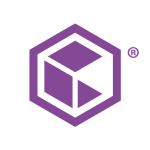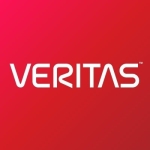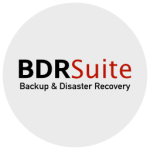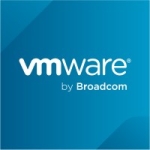What is our primary use case?
Our use case is 100 percent disaster recovery between two different geographies. We have a very large private cloud offering. We've got about 1,200 customers and almost 10,000 VMs that are under Zerto protection. Every one of those virtual machines needs to be replicated from Waltham to Chicago, from the East Coast of the U.S. to the central U.S. Likewise, we have a European business with the exact same flow, although it's much smaller as far as number of VMs; it might be a couple of hundred. That implementation is going from Berlin to Amsterdam. We've got one-way protection in two different geographies and all of those machines are under Zerto protection.
How has it helped my organization?
The number-one benefit is that for the first time we could show, at a customer-level of granularity, how a customer was protected, and what their RPO was in, real time. Each one of our 1,200 or so customers has a portion of those 10,000 VMs. For the first time we were able to tell a product leader or product manager what the RPO was on Thursday at 2:00 PM for that customer. We could say, "Hey, it was 67 seconds." Our company is very customer-centric and customer-focused. There's less interest in what the overall health is, and a lot of times there's specific interest in, "Hey, how is that customer doing?" either for performance or for RPO time.
Zerto also allowed us to easily pick groups of virtual machines, group them as a whole, and have that be segregated from the storage layer. That is the storage-agnostic benefit from their product. That agnostic feature with respect to the storage layer allowed us to group VMs by customer and not only report on RPO by customer, but also to more easily sell different RPO plans. We were able to prioritize and say, "Okay, these 10 customers have platinum and these 500 have silver."
What is most valuable?
Four years ago when we did a PoC between two other vendors and Zerto, there were two features of Zerto that sold it, hands-down. One was the ease of creating protection groups, the ease with which our engineers could create protection, add virtual machines into the Zerto product, and get them under DR protection. The other products we were looking at required work from two different teams. The storage team had to get involved. With this product, the whole thing could be done by just our virtualization team, and that was a big sell for us.
The second feature that sold us was the sub-second RPO. One of the things that made Zerto's product stand out from some of the more traditional solutions four years ago was its ability to maintain sub-second RPO over a group of machines, and that group of machines could be spread over multiple storage hardware. It was the storage-agnostic features of the product.
What needs improvement?
The number-one area in which they need to improve their product is what I would call "automatic self-healing." This is related to running them at scale. If you're a small company with 50 VMs, this doesn't really become a problem for you. You don't have 1,000 blades and 1,000 of their VRAs running that you need to keep healthy. But once you get over a certain scale, it becomes a full-time job for someone to keep their products humming. We have 1,000 VRAs and if any one of their VRAs has a problem, goes offline, all of the customer protection groups and all of the customers that are tied to that VRA are not replicating at all. That means the RPO is slipping until somebody makes a manual effort to fix the issue. It has become a full-time job at my company for somebody to keep Zerto running all the time, everywhere, and to keep all the customers up and going.
They desperately need to work self-healing into the core product. If a VRA has a problem, the product needs to be able to take some sort of measure to self-heal from that; to reassign protection. Right now it doesn't do anything in that self-healing area.
Buyer's Guide
HPE Zerto Software
October 2025
Learn what your peers think about HPE Zerto Software. Get advice and tips from experienced pros sharing their opinions. Updated: October 2025.
872,655 professionals have used our research since 2012.
For how long have I used the solution?
My company implemented Zerto in 2016, so we've been live with their product for a little over four years.
What do I think about the stability of the solution?
The stability comes back to size and scale. It depends. If you are not replicating heavy workloads—meaning you don't have a SQL server that's doing thousands and thousands of IOPS, and you don't have multiple SQL Servers on the same very large hardware blade—Zerto is incredibly stable, based on my experience with the product.
However, we are doing that. There's a one-to-one relationship between the Zerto VRA, which is essentially their chunk of code that does the replication, and a physical server. The physical server is running anywhere from one to as many virtual servers as someone can fit onto it. And that one VRA has to manage and push all the change blocks for all the workloads running on it. So if you've got five or six really heavy workloads running, that one VRA that has to handle all of that and push it to your destination can, and does, crash. VRAs in that situation crash or become unstable. We've worked a lot with Zerto over the last two years on tweaking the VRAs with advanced settings. We've directly been involved with identifying a couple of bugs with the VRAs. When the VRAs are pushed, they can only be pushed so far and then they crash.
It does perform. However, we have VRAs that crash all the time. When we go back and we look at why they crashed it's because we're pushing them too hard. We're doing things that they would say we shouldn't be doing. They would say, "Don't set six SQL Servers on the same blade. That's too much. Don't do that."
Zerto has worked with us very effectively on identifying advanced settings that we can make to the VRAs to make them perform better, and to be more stable in the "abusive" environment that we throw at their code base.
It could be more stable for really heavy use cases like that. But Zerto would come back and say, "Well, our best practices would have you put some sort of anti-affinity rule in place so that you don't end up with that many heavy I/O machines on a single blade." They would say that doing so is not best practice; don't do it. You could say that we abused their product, in that sense.
But it works. If you align with best practices, it's pretty stable.
What do I think about the scalability of the solution?
We have no concerns about the scalability, although I should qualify that statement. Zerto can scale horizontally extremely well. They've got one VRA per blade and that one VRA is their data plane. You can scale out your environment horizontally with as many blades or servers as you want, which is how people do virtualization and Zerto will scale with you. We've never hit a limit as far as its ability to scale as horizontally.
The caveat would be, as I mentioned elsewhere, the size of the pipe in your infrastructure to handle all of that replication. But that doesn't tie to the Zerto product itself.
In terms of the issue of VRAs crashing, you want to scale horizontally rather than scale vertically, because if you scale vertically you're packing more and more virtual machines into the same number of physical servers. You're stacking them up high rather than across. If you stack them up high you have concerns about the scalability of the single VRA. The VRAs do get overloaded. Don't pack them too high. Scale out, not up.
Zerto has spread out as a company. They've mushroomed out into other areas. They've started to develop a presence in backup and they've started to develop a larger presence in reporting. Their core product, however, is known as ZVR—Zerto Virtual Replication. We've implemented that core product 100 percent. There's no other way we could be consuming it differently or more effectively.
The newer stuff they've come out with—certainly the backup—we don't touch that at all. The backup product is not ready for prime time. It might be good for a small customer that may have 50 machines they want to back up. But for our use case, with SOC compliance, and having to report on the success of backups for recovery, and although we looked very closely at their backup and where they were going with it, it's not ready for us.
They're starting to go into Docker containers. None of our product right now is containerized.
A third area is analytics and reporting. The analytics and reporting would be the one new area that they've put focus on that we could be using more and getting more value out of. They've got a SaaS solution now for reporting called Zerto Analytics. We do use it. You turn on their core product and you tell it to send your reports to their SaaS offering. We've done that and we can consume the analytics product, but we just haven't really operationalized it yet. That, for us, has been a tool looking for a problem.
How was the initial setup?
It took us about two months to deploy the solution, but that was because we're a very conservative company. We purposely went extremely slowly. If we had wanted to go faster, it could have been done probably in a week or two, to get all 6,000 VMs under protection.
What about the implementation team?
When we deployed it, there were two dedicated people at our company who were involved, paired up with three people from a Professional Services team from Zerto. As a tertiary, we had a full-time person from our VAR, the reseller that sold us the licensing for Zerto. With that help from Zerto and the value added reseller, it only took two of us to install it to about 600 blades and probably 5,000 virtual machines.
Our experience was excellent. Both teams were great. It was a very painless rollout.
What's my experience with pricing, setup cost, and licensing?
I'm less involved with the pricing and licensing area now. The last time I was involved was a couple of years ago. In my opinion, their model is somewhat inflexible, especially for their backup product.
One of the reasons why we didn't pursue looking further at their backup product was, simply, licensing. Today we have to buy a Zerto license for every virtual machine that we want protected by their product. We have a lot of virtual machines that aren't production and that don't need to be protected by their product. They don't need sub-second RPOs. They do, however, need to be backed up. But Zerto's licensing model two years ago was, "Well, we don't care that you just need to back up those VMs, and you don't really need to replicate them. It's the same price."
We would have had to double our licensing costs for Zerto to adopt it as a backup solution. It was just not even within the realm of possibility financially. It made no financial sense for us to move off our current backup vendor. Their inability to diverge in any way from that was rigid.
Their licensing could be less rigid and more open to specific companies' use cases.
Which other solutions did I evaluate?
The other two vendors we evaluated back were Site Recovery Manager by VMware, and whatever Veeam's product was at the time. We also looked at CommVault lightly, but they were never considered seriously.
What other advice do I have?
Zerto can do what it says it can do. It can absolutely provide sub-second recovery point objectives, but with a couple of caveats. The caveats tend to apply to large companies like mine, and by "large" I mean if you have over 2,000 to 3,000 virtual machines, versus a small to medium-sized company that maybe has 50 to 500. Once you cross that barrier, you're getting into a larger environment that you're trying to replicate with Zerto.
A couple things can break down. Zerto's product doesn't control the path between your source production data and the destination you're trying to send it to. There can be tons of bottlenecks on that path; you can be going around the world. If the bottleneck doesn't exist there, their product can absolutely do what it says it does. It's up to the customer. The people using Zerto have to understand that they own the bottlenecks in their environment. If there is a bottleneck between production and the targeted DR, the RPOs are going to slip. You're going to go from sub-seconds to minutes or hours. That's not necessarily a fault of Zerto's product. It's the fault of the design of the customer's environment and what they brought it into.
That doesn't just exist for the pipe between the two sites. On the destination side, the side that's receiving this data, the storage layer underneath needs to be more performant than the production side. That's somewhat of a strange concept for a lot of customers and people coming into the Zerto solution. They see the marketing side of, "10 seconds to RPO" and say, "Yeah, I want that." But what it means is that you've really got to look at your hardware and you've got to have class-A hardware the whole way through that Zerto pipeline, for their product to do what it says it does. Zerto makes that very clear. They don't recommend hardware; they're not in the business of supporting other vendors. But they have a published list of best practices. The best practices clearly say everything that I just said. They also have best practices around managing your workload I/O on the source side, so that you don't overwhelm their product.
But not everyone follows best practices. Certainly, when we implemented it we said, "Yeah, we get that. We understand what you're telling us. We understand that's a best practice, but we're not going to do it anyway, because it's too expensive," or we didn't have it in budget for that year. So we knew it and we went in without following them. A couple of years later, when we got to a tipping point, we realized, "Okay, we need to go back and align with some of those best practices," things we didn't think that we had the time to align with back in 2016. We've made that journey painfully with their product, but they were very upfront with us on what the requirements for their product would be.
Overall, I would rate Zerto as a solid eight out of 10 for the core disaster recovery offering.
Which deployment model are you using for this solution?
On-premises
Disclosure: PeerSpot contacted the reviewer to collect the review and to validate authenticity. The reviewer was referred by the vendor, but the review is not subject to editing or approval by the vendor.
















